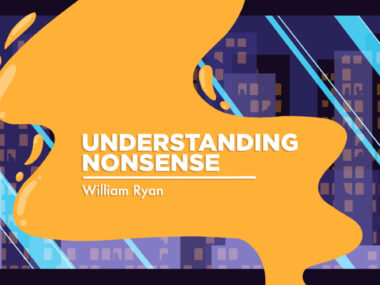Remembering my friend, the writer Steve Silberman
The late author helped my family process our grief after my sister's passing
Written by |

My friend Steve Silberman died a year ago on Aug. 29, 2024.
I was familiar with Steve before he knew me. Steve had written a highly popular and applauded person-centric history of autism titled “NeuroTribes: The Legacy of Autism and the Future of Neurodiversity.” His writing, much like my own, was rooted in optimism. I don’t know if Steve wrote to change the world, per se, but I do think he wrote because he loved life and knew the world could be so much better than it is.
I met Steve through my fellow Cystic Fibrosis News Today columnist and mutual friend Brad Dell. I had been writing for this website for only a few months when I was included in two videos for the plenary sessions at the North American Cystic Fibrosis Conference in 2018.
It had been a few years since Steve had published “NeuroTribes,” and he had landed on cystic fibrosis (CF) as the topic of his next book. Inspired by one of his close friends, it was to be titled “The Taste of Salt.”
I am confident that he would’ve told the history of CF through the stories of those of us who’ve lived it. I imagine his beautiful, humanizing prose would have been interspersed with descriptions of the underlying mechanisms of the disease, explained in plain yet accurate language. As of now, it doesn’t appear that any version of “The Taste of Salt” will be published, which is a tragedy. I hope that changes.
A healing connection
Writing was the thread that connected me to Steve, but it had only become a legitimate part of my life after my sister, Alyssa, who also had CF, died. This is the butterfly effect in action, I suppose. Or perhaps it’s an example of the interconnectivity of everything — sympatheia, as the Stoics called it.
Had Alyssa not died when she did, would I have invested myself in writing, willingly exposing the most vulnerable parts of myself to try to alchemize something meaningful out of her death? I don’t know. I wrote a lot before she died, but I tiptoed around the heaviest subjects, always making cryptic references to death. These references were largely influenced by the books I was reading at the time (Cory Taylor’s “Dying: A Memoir,” Paul Kalanithi’s “When Breath Becomes Air,” and Atul Gawande’s “Being Mortal: Medicine and What Matters in the End,” to name a few).
Apart from my parents, Alyssa and Steve were two of my biggest supporters as I was beginning to write. Steve’s vote of confidence meant a lot to me. I think he knew that.
In the spring of 2019, Steve flew to Union, Kentucky, to interview me, my parents, and my aunt for his book. It was the first anniversary of Alyssa’s death, and our conversation ended up being one of the most healing and therapeutic experiences in helping us process our grief.
It felt, in a way, that it enabled us to heal some intergenerational trauma, as it was one of the few times I got to hear my family tell stories of my and Alyssa’s childhood and of my late aunt Renée, who died from CF in 1978. For as close as we were, my parents and I rarely broached such subjects. I used to think that was their choice, that they didn’t want to get into it. But in retrospect, I think I was just as scared to hear how they felt watching my sister and I grow up with such a terrible disease. It also gave me an unconditional appreciation for my parents’ commitment to us and the depth of love they had for us.
I likely would’ve never seen that side of my parents if not for Steve’s kindness, attention, and compassion. He gave us the space we needed to feel safe and secure in sharing our life.
Today, I attribute much of my perspective on advocacy to Steve and the stories he told in “NeuroTribes,” which demonstrated that narratives aren’t written without the people they’re about. To his credit, he never centered himself, instead working to shift the power to those whose stories he told.
The world is quieter and a bit dimmer without Steve. I miss his incisive commentary on social affairs and his prose. Steve was one of my favorite writers, but more importantly, he was one of my friends.

From left, Steve Silberman and Tré LaRosa spend time together in 2019. (Courtesy of Tré LaRosa)
Note: Cystic Fibrosis News Today is strictly a news and information website about the disease. It does not provide medical advice, diagnosis, or treatment. This content is not intended to be a substitute for professional medical advice, diagnosis, or treatment. Always seek the advice of your physician or other qualified health provider with any questions you may have regarding a medical condition. Never disregard professional medical advice or delay in seeking it because of something you have read on this website. The opinions expressed in this column are not those of Cystic Fibrosis News Today or its parent company, Bionews, and are intended to spark discussion about issues pertaining to cystic fibrosis.








Sue LaRosa
This is an amazing article. Well written Tre’. Steve was a wonderful gentleman and wonderful writer. You write from your heart and we know you’re a loving and compassionate young man. God bless.
Love you